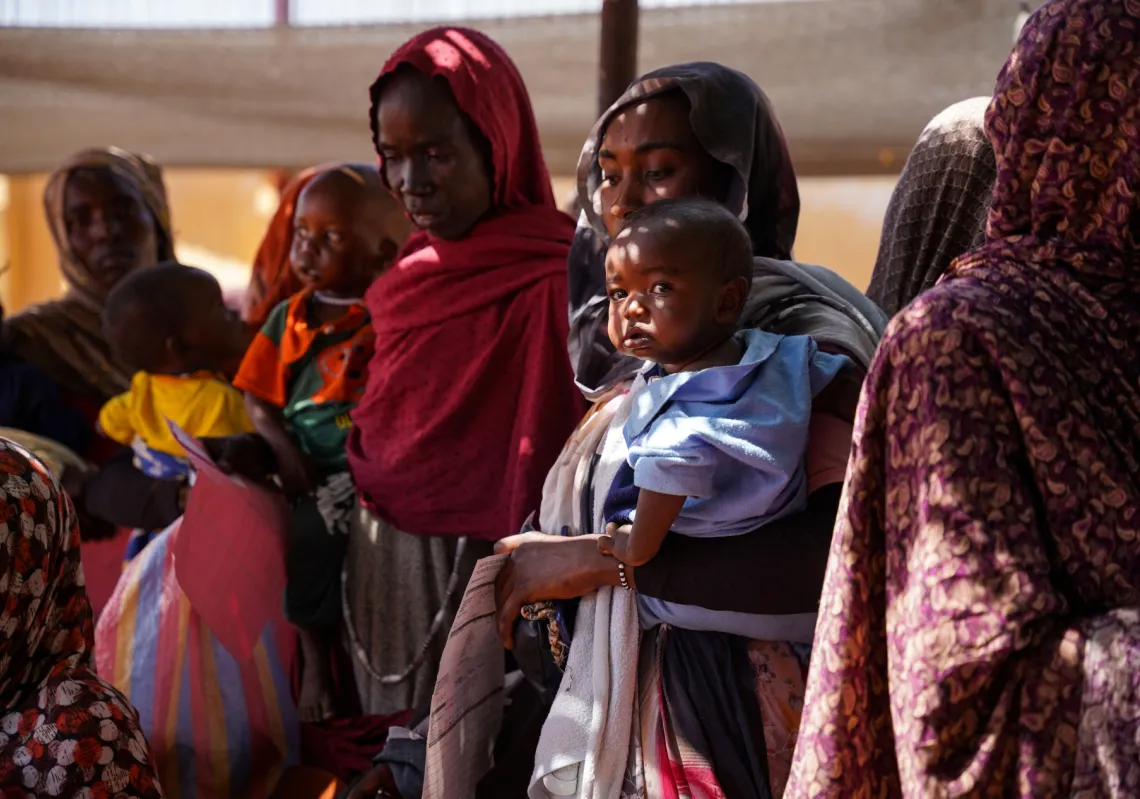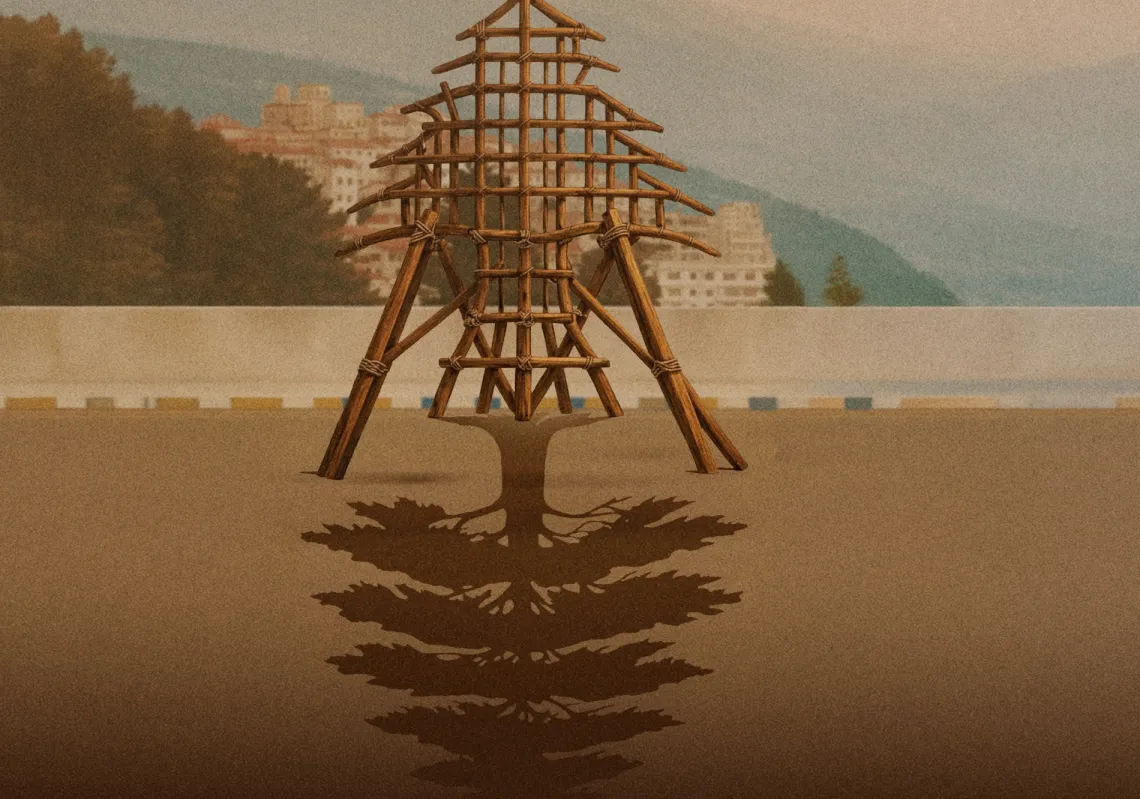Anybody trying to understand where Turkey is going could do worse than to visit the home province of its mould-breaking new foreign minister. Back in 1959, when Ahmet Davutoglu was born into the house of a merchant just down the road in the sub-district of Taskent, the district capital Konya was a town of about 50,000 people. Perched on the southern tip of Turkey's vast Central Anatolian Plain, it served farmers coming in from miles around. Horse-drawn carts far outnumbered cars, and the easiest way to make an inter-city telephone call was to go to the Yayla Hotel, opposite the ruins of the Seljuk palace on the prehistoric mound that marked the town centre.
"It seems like a foreign country, looking back now", says Konya-born engineer Ali Akkaya, 18 years Davutoglu's senior. He remembers how his friends laughed in the early 1960s when he threw in a job with a state department responsible for building irrigation canals to open a small workshop. It was the sight of him hard at work welding water tanks that they found funny. "Engineers were supposed to spend their days behind a desk, signing things, not getting their hands dirty", he says. "We were economically closed, we were politically closed and our minds were closed."
It is a fair description of the country as a whole. By the 1970s, Akkaya had served as an apprentice in Austria and traveled to Ceaucescu's Romania to visit the spare parts factories there. For most of his fellow countrymen, though, Turkey's frontiers appeared pretty much the way the billboards at the border crossings described them: walls erected "to defend the honour of the motherland." Until 1983, laws protecting the Turkish currency made it theoretically an offense even for waiters to accept a dollar in tips from a foreign customer. Starved of hard currency, businessmen traveling abroad had to hide black market deutschmarks in their socks when they took the plane. Guardian of NATO's southeastern flank, ideologically at loggerheads with the USSR, Syria and Bulgaria, historically at loggerheads with Greece, Turkey was like the last stop on a global tube line. Annual exports averaged barely $1.5 billion throughout the 1970s.
Four decades on, Konya alone exports as much. Set up with considerable difficulty in the early 1970s by Ali Akkaya and 60 other first generation industrialists, the local Chamber of Industry now boasts 1300 members. Four organised industrial zones extend 20 miles north along the new motorway connecting what is now a city of over a million inhabitants to Turkey's capital, Ankara, two hours away.
Like the increasingly urgent reforms of the Ottoman Empire from the 18th century onwards, it is a transformation that has been powered by the proximity of vastly superior European technology. Set up in the 1950s, Konya's first workshops were repair shops for western-made agricultural equipment. Akkaya has first hand experience of Turkey's dependence on foreign goods: work in his state office had been held up for days because his boss lacked the hard currency to buy spare parts for three American-made excavators that had broken down. "Three cogs about the size of my fist, that's all it was", he says, describing how he paid for a small shipment of Austrian steel with his first wage, fashioned new cogs out of it, and handed in his resignation.
Accelerating after Turkey signed a Customs Union with Europe in 1995, the trade relationship between Turkey and Europe reached a high point after 2001, when a corrupt banking system triggered the worst economic crisis in Turkey's history. "The domestic market dried up", remembers Esref Cifci, head of a Konya-based factory that supplies parts to car makers like Renault. "We all made our catalogues, set up our websites, picked up our briefcases and set out to find new buyers." Back then, new buyers meant Europe: Turkish industry didn't have the reputation to permit people like Cifci to sell directly to buyers in the developing world. Instead, they sold to middlemen in Europe who repackaged and sold on.
A decade on, Turkish-European trade links appear to be on the ebb. Between 2007 and 2009, Europe's share of Turkish exports dropped from 57% to 49.5% while the Middle East's share more than doubled from 10% to 22%. In 2009, meanwhile, Konya, for the first time ever, exported more goods East than West in 2009. Symbolic statistics that have a perfectly rational justification, Konya businessmen say. For one, the industrial pecking order is less pronounced than ten years ago, cutting out the need for the middlemen Cifci refers too. More importantly, the on-going global crisis has affected developed western economies far more than Turkey and its less economically developed eastern neighbours.
Long before European Union members began debating how to deal with indebted Greece, most analysts were predicting at most 1% growth in the Eurozone this year. South of a 300-mile long border it shares with Turkey, 90% of its construction sector in the hands of Turkish companies, Iraqi Kurdistan, meanwhile, is expected to grow by 20%. After years spent worrying about growing Iraqi Kurdish autonomy, Ankara has now decided to open a consulate in Erbil, capital of Iraq's federal Kurdish region. Another country which appears to have escaped pretty much unscathed from the global squeeze is Sudan, the world's second fastest growing economy over the past three years. Like China, Turkey is increasingly active there. One Turkish company, close to the government, provides uniforms to the Sudanese army. Another is building the country's tallest skyscraper, the 29-storey National Telecommunication Corporation tower. Turkish companies are lobbying hard to win an estimated $1.5 billion contract to build a new international airport in Khartoum. "Sudan must become a strategic partner for Turkey", the Turkish Minister of Agriculture Mehdi Eker said last October, during his second visit to Sudan in 2009. So close are relations between Khartoum and Ankara that the latter came within a whisker of hosting Sudanese President Omar Hassan al-Bashir for the third time in two years, and the first time since the International Criminal Court issued a warrant for his arrest on war crimes charges.
The benefits of robust Middle Eastern growth are nowhere more evident than in the industrial city of Gaziantep, just an hour north of the border with Syria that Ahmet Davutoglu and his Syrian counterpart symbolically opened to visa-free traffic last autumn. In the first quarter of 2009, Gaziantep's exports to Iraq and Syria rose by 93% and 106% respectively, while exports to Italy and Russia dropped by 31% and 51% respectively.
"The figures are like an x-ray of the effects of the global crisis", says Figen Celikturk, deputy director of Gaziantep's Chamber of Commerce. "If the West collapses, we have the good fortune to be strategically placed to export eastwards too, it is as simple as that."
Is it really as simple as that, though? Is the increased multilateralism that has characterised Turkish diplomacy since Ahmet Davutoglu began pulling strings behind the scenes in 2002 simply a reflection of the country's growing industrial clout and concomitant search for new markets? Is the speed with which Turkey has been opening embassies and consulates in countries to its south and east (15 in Africa over the past two years) merely a political response to the changing balances of world trade? Or is it a sign that Turkey, grown tired of its role as the perpetual suitor of Europe, finds the position of regional leader more congenial?
Widely acclaimed as the chief architect of a foreign policy transformation which actually began before his Justice and Development Party (AKP) came to power in 2002, Ahmet Davutoglu has always insisted there is no contradiction between Turkey's growing regional prominence and its candidacy to the European Union. "The more you pull the bow-string eastwards, the further you can shoot the arrow westwards", he says, using a curiously belligerent image at odds with his reputation as the most peaceable of men.
Among the Konya business community, outspoken opposition to the European Union is rare. But then so is criticism of the way in which the Turkish government seems to have put a complete stall on its reformist agenda since the European accession process started in 2005. That is not surprising. This is a city which in 1969 voted in the first explicitly Islamist (and anti-western) parliamentary candidate, and which has voted overwhelmingly for Islamic-tinged parties (including the AKP) ever since. What you hear almost everywhere is a conservative rhetoric which mixes huge pride at Turkey's new-found economic strength with varying degrees of ambivalence about the West.
Sometimes, the ambivalence is explicit: nationalism tinged with schadenfreude at the way the economic boot appears to be increasingly on Turkey's foot. "Turkey's future is open, I'll have you know", says Mehmet Ali Atiker, one of Konya's best-known industrialists, tapping the table with his finger, suspiciously eying the card I give him, half-convinced I am an industrial spy. "Europe may not pay much attention to us now, but they will.... The era of kingdoms is finished. The kings—Europe and America—are condemned to disappear." Like Turkey's Prime Minister, Recep Tayyip Erdogan, who told a group of students on their way to post-graduate programmes in European universities early in 2008 that their predecessors had "imported only immorality from the West", others express concern at the harmful effects of western culture.
The CEO of a company that manufactures ovens and cutting machines for the baking industry, Vedat Yondem, remembers well how uneasy he felt when he went to Istanbul to start studying engineering at Turkey's most prestigious public university, the American-founded Bosphorus University. "The values there were not values we approved of, to be honest—dancing, going for tea with your girlfriend, that sort of thing", he says. "It was foreign to me. My blood group is A and I can't change that. You can't give me O."
A sympathiser of Fethullah Gulen, the charismatic preacher whose followers in Turkey—estimated at between two and six million—have been opening schools across the world since the early 1990s, Yondem, shares Gulen's fascination and admiration for Turkey's Ottoman past. At times, he makes the Ottoman armies which swept through the Balkans and into Hungary in the 14th century sound like a late-medieval version of the teachers in Gulen's schools—secular in the classroom, models of upright Muslim sobriety outside.
"Do you know what made the Ottoman Empire great", he asks. "Its honesty, its sense of justice. And that culture is still there. In our Anatolia, I get the feeling today that the embers are still there, under the ashes. If somebody comes, if somebody comes and gives the ashes a good blow, those flames will rise again."
Unlike almost any other nationalist or Islamic-minded group, the Pennsylvania-based Fethullah Gulen is pro-Western and (particularly) pro-American. For all his distaste for certain Western habits, Vedat Yondem is too. His daughters are at American universities. He travels regularly to Europe. His Ottoman nostalgia is not, as it was with earlier Turkish Islamists, an expression of hostility to the West. It is an expression of confidence, of growing impatience with the introverted and sometimes xenophobic world view of those generations who lived through the trauma of the founding of the Republic, born out of the rubble of an empire assailed on all sides by invaders.
Ali Akkaya sums up the change in mentality. "Back when I was starting up... the Arabs were dirty tribesmen and the Europeans were a bunch of infidels, as far as we were concerned", he says. "These days, we don't even hate the Russians. Today's Turkey is more tolerant of the West, more tolerant of the outside world in general. We have lost our fear. We have realised that the borders are here to stay." This is the spirit that informs the 'neo-Ottoman' slant of Turkish diplomacy under Ahmet Davutoglu: self-consciously Muslim and bursting with confidence.
A foreign policy analyst sympathetic to the AKP (his wife is an AKP deputy), Ihsan Dagi occasionally worries the government overdoes its Muslimness. He acknowledges that ministers clearly feel much more at ease in Middle Eastern capitals than in Brussels and thinks one of the government's chief weaknesses since Abdullah Gul moved to the President's palace has been its lack of a counterbalance to Davutoglu, a Davutoglu who could look West. But he wonders whether the greater danger is not simply over-reach triggered by over-confidence.
"Turkey is a new-comer to this great power game", he says. "It never had this option during the Cold War. It wants to be a major player in the Middle East. Does it have enough experts on the Middle East in the ministry?" In a recent paper, Katynka Barysch, deputy director for the London-based Centre for European Reform, makes a similar point. Germany has 7000 trained diplomats, she points out. Turkey, a country of roughly the same size, has just 1,000.
Since Turkey began opening up to the world, both economically and politically, in the early 1980s, its lack of experience has showed. One of the country's most visionary leaders, and a neo-Ottomanist long before Davutoglu came onto the scene, Turgut Ozal dreamed of Turkish hegemony in the Turkic-speaking lands of Central Asia. Apart from scores of Gulen schools and the beginnings of a fortune for Erdogan's favourite businessman, Ahmet Calik, nothing much came of it. Islamist Prime Minister and Konya deputy Necmettin Erbakan's plans to turn Turkey's face away from Europe in the 1990s blew up in his face, when the Libyan leader Muammer Gadhafi, sitting in a bedouin tent outside Tripoli, upbraided him during an official visit for mistreating the Kurds. The whole sorry scene was broadcast on Turkish TV later that evening.
The AKP's diplomatic opening has so far been much more successful, in large part because Turkey is a much more powerful country trade-wise than it was a decade ago. But there are signs that cracks may be beginning to form. Rather than concentrating on using its good will to try to bring Fatah and Hamas together, Erdogan (perhaps because his claims to represent the oppressed inside Turkey are looking increasingly dubious) seems set on playing the part of scourge of Zionist oppression overseas. In the mean time, his government's bravest foreign policy move, the rapprochement with Armenia, risks falling apart at the seams.
"The AKP has thrown a lot of balls up into the air", says foreign policy analyst Soli Ozel. "But the skill of a juggler lies in his ability to catch the balls and throw them back up again. The balls are beginning to fall now, but we haven't quite reached the crucial moment."
The Turkish novelist Alev Alatli once compared her country to Schrodinger's cat, capable of being two mutually incompatible things at the same time. The box hasn't opened on Turkey's foreign-policy make-over yet and we don't know whether the cat will be alive or dead. Like earlier governments, the AKP may eventually feel the need to turn the bulk of its attention westwards again.
Alternatively, the flurry of reform packages that Turkish politicians passed after 2001 to ensure a start to European Union accession proceedings may in time be seen as the high summer of a rapprochement in terminal decline, a desperate flurry of activity aimed at shoring up a national economy that was on the verge of collapse.
Nicholas Birch – Worked as a freelance reporter in Turkey for seven years. He currently writes for the Wall Street Journal and the Times of London.







